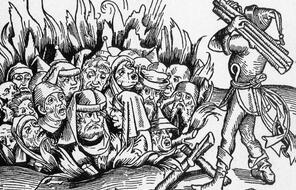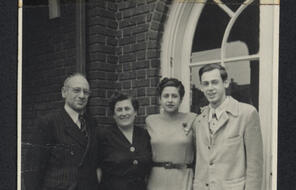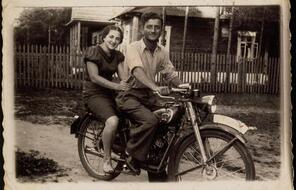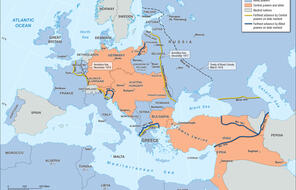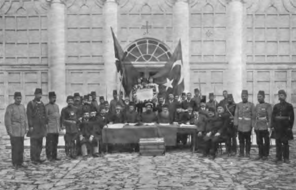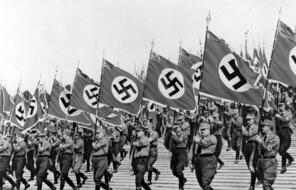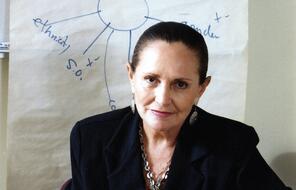Does the Universal Declaration of Human Rights Matter?
At a Glance
Language
English — USSubject
- Civics & Citizenship
- History
- Social Studies
- Human & Civil Rights
- The Holocaust
What did the authors of the Universal Declaration of Human Rights (UDHR) achieve? Soon after the declaration was adopted in 1948, critics spoke up. Why had no binding legal agreement or covenant been created? Were the prospects for completing a successful covenant and for its enforcement bright or dim?
Eleanor Roosevelt, chair of the UN Commission on Human Rights, acknowledged that no part of the document could be enforced legally. But to place the emphasis on that fact was to underestimate the declaration’s power. Roosevelt made it clear that she and her colleagues had “great belief . . . in the force of documents which do express ideals.” They were aware that although words, ideas, and ideals may mean little by themselves, they hold great power when they are widely explained and accepted: “They carry no weight unless the people know them, unless the people understand them, unless the people demand that they be lived.” 1
A few years later, Eleanor Roosevelt gave a speech before the United Nations that she titled “Where Do Human Rights Begin?” In her view, human rights begin
in small places, close to home—so close and so small that they cannot be seen on any map of the world. Yet they are the world of the individual person: The neighborhood he lives in; the school or college he attends; the factory, farm, or office where he works. Such are the places where every man, woman, and child seeks equal justice, equal opportunity, equal dignity without discrimination. Unless these rights have meaning there, they have little meaning anywhere. Without concerted citizen action to uphold them close to home, we shall look in vain for progress in the larger world. 2
Three quarters of a century after the Universal Declaration of Human Rights was adopted, the ideal of human rights is widely recognized, even as individuals’ rights are routinely violated around the world. Still, there is evidence of progress. Language from the UDHR has been written into the constitutions of a number of countries. More than 80 international declarations and treaties trace their origins to the UDHR, including the Convention against Torture (1984) and the Convention on the Rights of the Child (1989). When countries ratify these and other treaties, they acknowledge human rights and accept a legal obligation to protect them. All United Nations member countries have ratified at least one of nine major human rights treaties, and many have ratified more. 3 The European Union has its own Court of Human Rights for citizens. The UDHR has also influenced the work of non-governmental organizations like Amnesty International and Human Rights Watch, just two of thousands of groups that work to promote and monitor human rights around the world. While human rights remain far from universally respected and protected, individuals today have access to ways of spelling out, claiming, and defending their rights that were unimaginable in the darkest moments of World War II.
Connection Questions
- What is the power or potential of a document like the UDHR? What has the UDHR accomplished? What are its limitations? Is there value in having an agreement whose goals may seem difficult or even impossible to achieve?
- How might the UDHR influence the way countries define their universe of obligation?
- Eleanor Roosevelt believed that human rights begin in “small places, close to home,” such as in neighborhoods, schools, and workplaces. What meaning do human rights have for you in your everyday life? Are human rights valued and protected in your school and community? How do you know?
- 1Eleanor Roosevelt, “Making Human Rights Come Alive,” in What I Hope to Leave Behind: The Essential Essays of Eleanor Roosevelt, ed. Allida M. Black (Brooklyn: Carlson, 1995), 563.
- 2Eleanor Roosevelt, “Where Do Human Rights Begin?,” in Courage in a Dangerous World: The Political Writings of Eleanor Roosevelt, ed. Allida M. Black (New York: Columbia University Press, 1999), 190.
- 3“The Foundation of International Human Rights Law,” United Nations, accessed June 1, 2016.
How to Cite This Reading
Facing History & Ourselves, "Does the Universal Declaration of Human Rights Matter?," last updated August 2, 2016.

